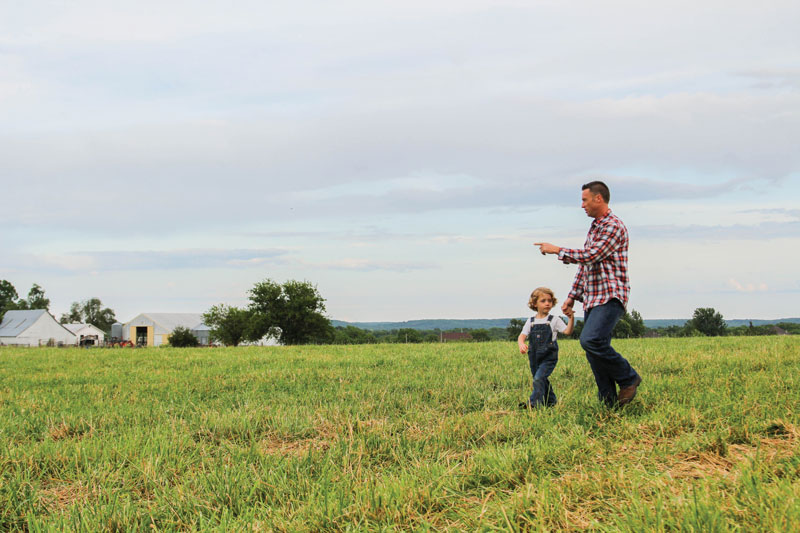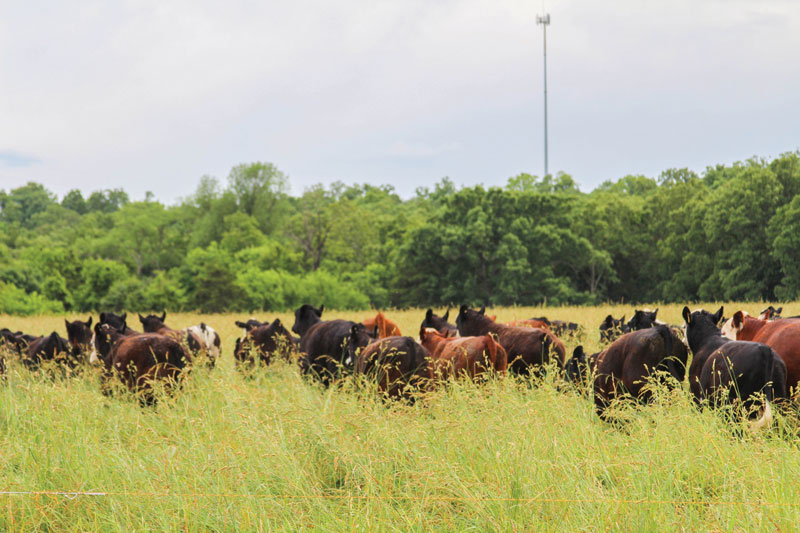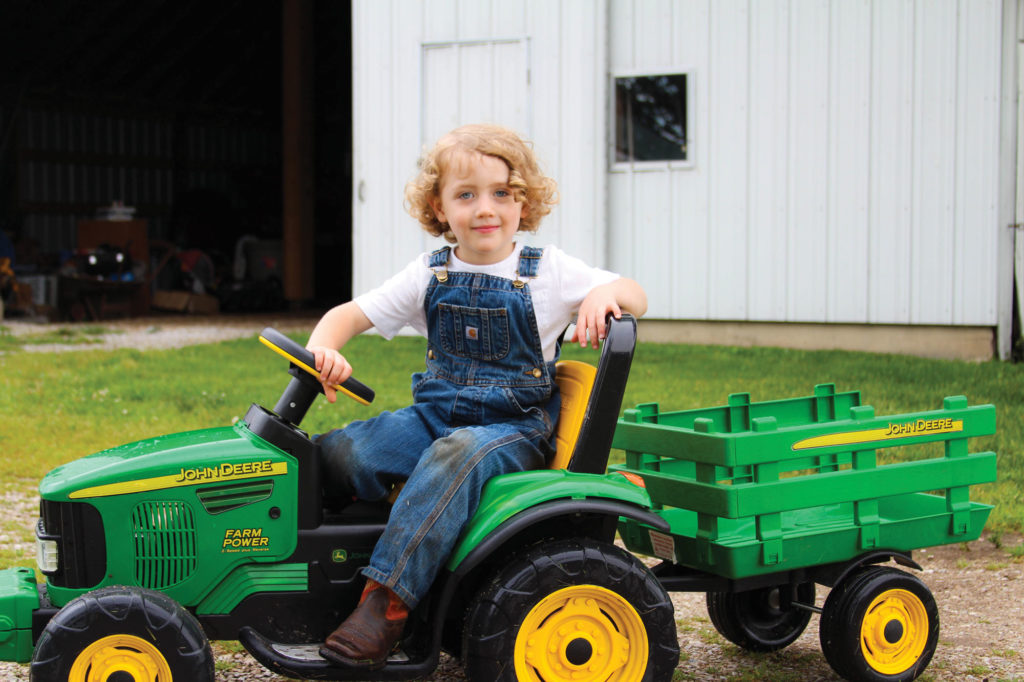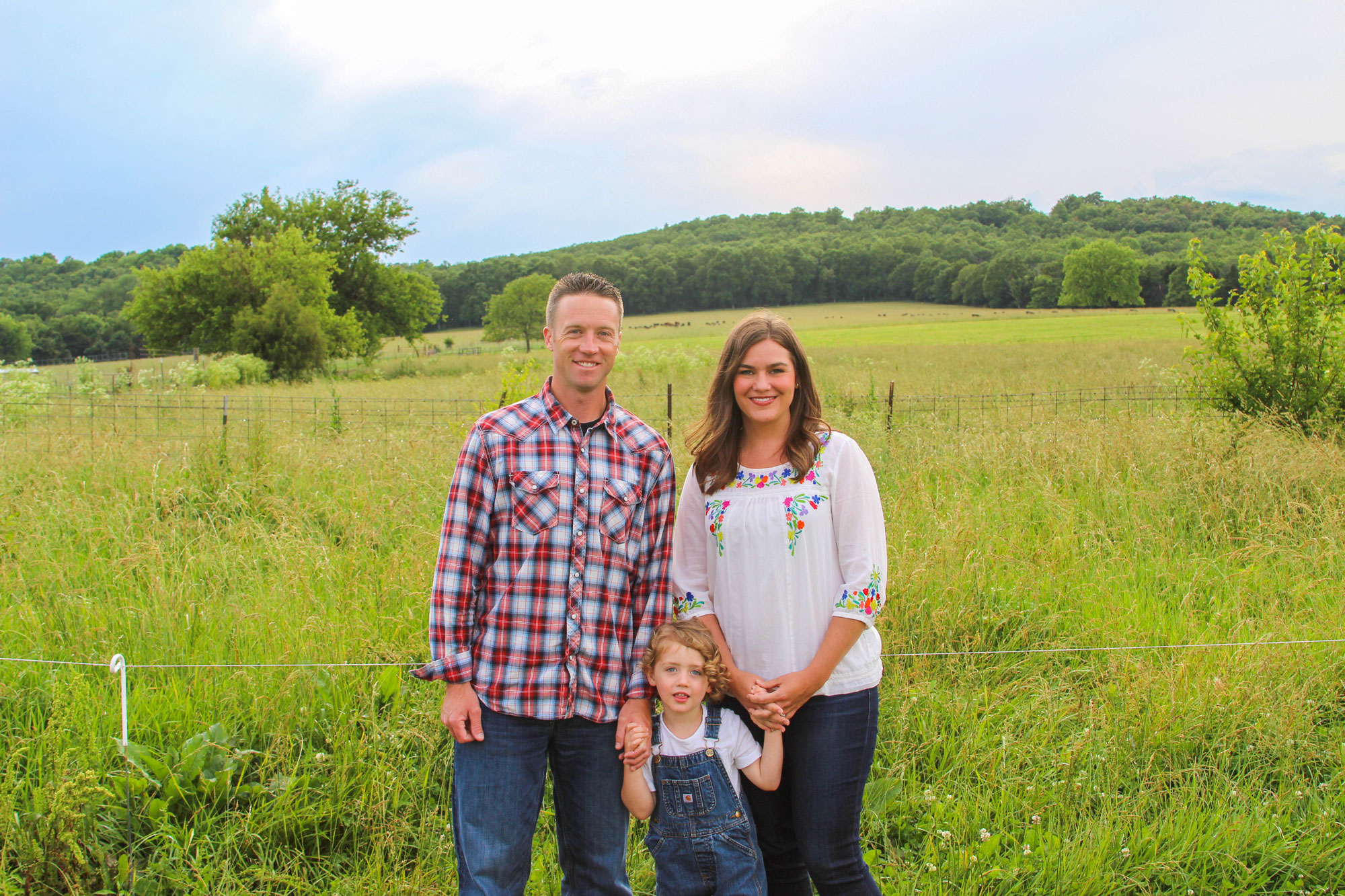
Building a Herd
July 10, 2017
Written By Adam Buckallew
First Generation Rancher Blazes His Own Trail
Lincoln Hough was a seventh-grade student when he made the fateful purchase that would help shape his future. A $450 loan from his parents bought Hough three Hereford heifers, which he bred to a neighbor’s bull. Three calves later, he had $1,000 in his savings account, and felt as if he had just stumbled upon his own personal golden goose.
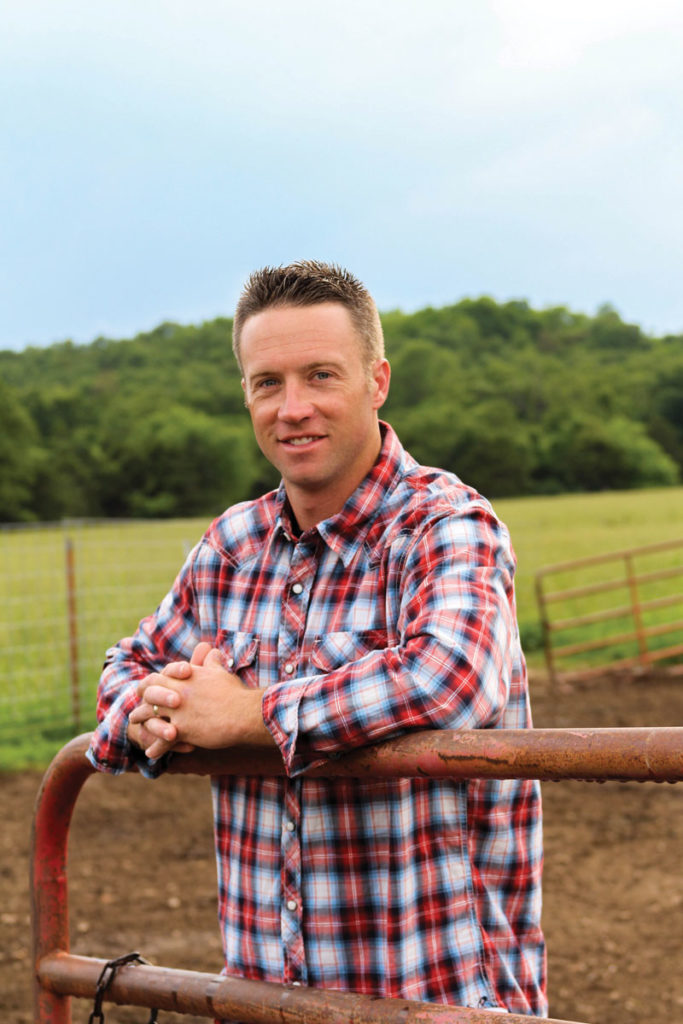
“The first calf paid off the loan to mom and dad, and the other two were money in the bank,” Hough recalls. “I wasn’t paid an allowance and my parents didn’t give me money for good grades, so when I sold those calves, I felt like the richest person you’ve ever met. I thought I had it all figured out, and if I could just get three more cows, it would be just like printing money.”
The experience with the heifers and calves was Hough’s introduction to agriculture. His family wasn’t involved in farming or ranching, but they did have 40 acres of pasture on the outskirts of Springfield, Mo. Despite his young age, Hough saw opportunity when he looked at his family’s land.
“Before I bought the heifers, I remember looking around and seeing cattle all over the countryside in southwest Missouri and thinking to myself, ‘There’s got to be a reason why all of these people are doing this,’” says Hough.
The initial success was enough to motivate Hough to deepen his investment in cattle. He went to the bank, secured a loan to purchase an additional seven cows and rented a neighboring field. From that point, he was well on his way to becoming a first-generation rancher.
Finding a Mentor
Hough, 35, and his wife, Sarah, now have a bona fide farm with a few hundred head of cattle in northeastern Greene County, Mo. They run a cow-calf operation where they background all of their calves up to 750 pounds and raise their own replacement heifers.
“I’ve been able to grow my herd from those three initial heifers into the business we have today,” Hough says.
Hough’s early start gave him the opportunity to slowly build his herd while he finished his schooling. When he was 15, Hough began working at the dairy farm down the road from his parents’ house for extra money and to broaden his agricultural knowledge. There he would meet Ferguson Feemster, who owned the dairy and would go on to become Hough’s farming mentor.
Feemster laid the foundation of Hough’s agricultural understanding through conversations the two would share once Hough was finished with his milking responsibilities for the day. Hough worked at the dairy for 10 years as he finished high school and college.
“Ferg taught me so much, but the main lessons were to never assume you know everything and to never quit learning,” Hough says. “He knew there was always something else to learn, and he was willing to adapt and be flexible enough to succeed.”
Taking his mentor’s advice to heart, Hough has begun to adapt his management practices. He recently converted much of the pasture land surrounding his home into a rotational grazing farm.
“I wouldn’t call it intensive rotational grazing, but we are running about 100 to 125 weaned calves into a new paddock every three days,” Hough says. “We have about a dozen paddocks set up for rotation, and it’s working well so far.”
Building Up the Operation
When Hough graduated with a degree in political science from Missouri State University, he had about 50 cows and a decision to make. He knew he either needed to expand his cattle operation significantly or it would be time to sell.
“I was still working at the dairy, but I knew that farm was never going to be my farm,” Hough says. “The dairy provided me with a wonderful education, but I knew if I wanted to have a farm of my own, I’d have to do it on my own.”
It was about the same time when Hough learned of a neighbor who intended to sell 75 cows and rent his farmland. He made a bid for the cows and the farm lease, but the neighbor decided on a different offer. The other deal eventually fell through, and the neighbor came back to Hough to see if he was still interested.
“We came to an agreement, and the size and scope of my cattle business more than doubled in one fell swoop,” notes Hough. “That was really the thing that propelled us to the position we are in now.”
Today, Hough’s operation includes 400 acres of property he and his wife own and about 1,500 acres they lease.
“I knew it was going to be too expensive to try to buy land, equipment and cattle all at once and pay interest on all of it,” says Hough. “You just can’t afford to do it that way unless you win the Powerball. We gradually built up our herd before we ever bought a piece of ground.”
Hough credits his father for helping to develop his understanding of the financial side of cattle ownership.
“From the beginning, my dad told me I had to treat my investment into those original three heifers like a business, and that included paying rent for the 40 acres of land my parents own,” Hough says. “It helped me learn this is not a get-rich-quick scheme. This is a game of longevity.”
When farmers in the area have property they are looking to sell or lease, Hough, who has developed a reputation as an up-and-coming cattleman, is one of the first people they call.
“People like the way we take care of the land and the cattle, and that’s given us opportunities to expand,” says Hough. “There are a lot of farmers and ranchers in this area who are nearing the age where they want to sell or turn over the managerial responsibilities of their farm.
We’ve made a few deals where we purchase the cows, rent the farm and the owners continue to live on the property. Those types of deals make for seamless transitions where everybody wins.”
Path to the Farm
It’s as hard as it’s ever been to get into agriculture these days, but Hough says that doesn’t mean it’s impossible.
“It’s not easy, but you shouldn’t let that stand in the way of going for it if this is something you are passionate about,” Hough says. “There are a lot of people who will tell you, ‘You can’t do it, it’s too expensive and too hard,’ or ‘If you didn’t grow up on a farm, there’s no way you can do it,’ but that’s just not true. It may take longer and you may not start out with a turnkey operation, but you can make it happen if you are patient and put in the work.”
Hough’s wife, Sarah, says their philosophy of setting small, attainable goals has helped to grow the operation.
“Lincoln has always done a great job of thinking through how we get to the next level,” Sarah says. “We try to be strategic with our purchases. We look at what it will take to help us meet our goals—whether it’s a piece of hay equipment, a truck, more land—and we plan accordingly.”
While Hough may not have had a generations-old family operation to join when he was ready to jump into agriculture, he says there are some advantages to starting out on your own.
“So long as Sarah and I agree, which we normally do, I get to decide how everything on the farm is run,” Hough says. “I know there are a lot of other young farmers and ranchers who may have to sell their ideas to their fathers and grandfathers before they can take action.”
Hough worked side jobs fixing fences and baling hay for neighbors while he got his own operation up and running after college.
“It was a struggle initially,” Sarah says. “Everything used to be on a shoe-string budget. I remember a time in the hayfield where I was trying to hold a belt for a bailer while Lincoln tried to stabilize it. We had to do everything on our own in the beginning.”
Hough worked exclusively on the farm for several years before he was elected to the Missouri House of Representatives in 2010. The demands of his new off-farm job meant it was time to bring in hired help. The Houghs now have two employees who help manage the family’s herd. Their help has become essential now that Hough was recently elected to the Greene County Commission.
“Greene County is one of only nine first-class counties in the state, and our commission is one of only six that meets daily, so it’s taken some adjustment,” Hough says. “When I worked in the state legislature, I was there four days a week, January through May. That schedule actually lined up fairly well with the agrarian calendar. It remains to be seen how well I’ll be able to navigate hay season, but we are lucky to have good help who know what they are doing.”
Though it may not have been the exact future he had envisioned for himself, Hough says he and his wife are happy to be living the farm life. They’ve been together eight years and enjoy raising their son, William, 4, on the farm.
“I never had a definitive plan to get into agriculture,” Hough says. “There wasn’t an aha moment or epiphany where I said, ‘This is what I want to do.’ It’s been a series of events which has led us to this point, and we are very satisfied with our decisions.”


